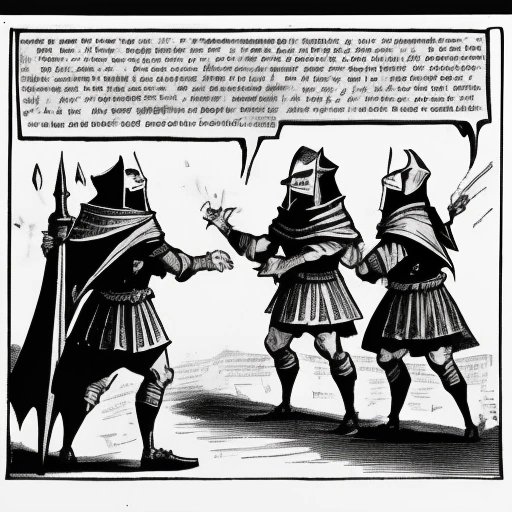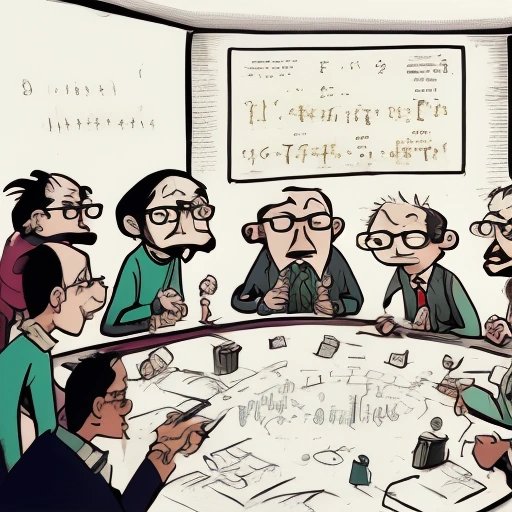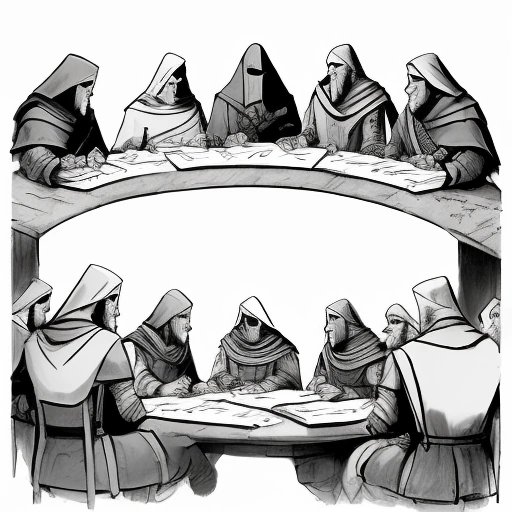In an age where the internet remains the ultimate bastion of diplomatic debate and civilized discourse, a fierce holy war has erupted between two powerful factions: the Math Crusaders and the Maths Templars. The colossal schism within this intellectual brotherhood was forged from a simple question - is it "Math" or "Maths"?
This religious arithmetic conflict has spread like wildfire across social media platforms, ascended to the high towers of academia, and even infiltrated the hallowed halls of some of the world's most esteemed mathematicians.
But where did this ancient arithmetic acrimony find its roots? The initial spark ignited from a humble Facebook post, posted by Mildred: "My son's math teacher keeps saying 'Maths', do you think she needs English lessons too?"
This seemingly innocuous inquiry would go on to ignite a maelstrom of debate that could only be described as a maelstrom of debate.
As the Math Crusaders fervently advocated for the singular form of the word, citing its prevalence in American English and its brevity as the key to solving equations more efficiently, the Maths Templars staunchly championed the plural, arguing that it not only encompasses the diversity of the subject but also reflects the British roots of the English language itself.
These impassioned zealots deployed an impressive arsenal to bolster their respective causes, consisting primarily of verbally eviscerating their opponents, weaponizing memes with military precision, and constructing elaborate conspiracy theories as to why their rivals were allegedly paid by malevolent puppetmasters.
One particular illuminating theory proposed by a Math Crusader claimed that their adversaries were in fact, "crypto-metricists" who sought to subvert the imperial measuring system, with an endgame strategy to replace the holy inch with unholy centimeters.
As the factions continued to amass followers, cresting over the millions mark, the conflict escalated. These noble soldiers of arithmetic began to invade the halls of academia and the minds of the youngest generation. It wasn't long before illustrious mathematicians were forced to take sides within this tumultuous fray.
Academics around the world were forced to make arduous choices, as factions within universities emerged, armed with sharpened protractors and militarized calculators. No theorem was safe from scrutiny, as the debate began to seep into lectures, research papers, and even the sacred proofs that underpin our understanding of the universe.
Astoundingly, this very uproar appeared to have transcended our earthly realm, as evidenced by a rogue space probe that was caught scrawling "Maths!" in the dust of the Martian surface. When questioned, it hastily claimed it was merely indulging in an artistic pursuit.
And the debate was far from decided, as a new conflict brewed within certain sects that once stood united. Questions arose about whether they should make a stand for "Math" or "Maths", while others wondered about the true value of fighting such a seemingly inconsequential battle.
As the possibility of peace loomed on the horizon, a voice of reason emerged amidst the chaos - a lone mediator daring enough to bridge the gap between the clashing ideologies and negotiate a ceasefire. With the backing of the universal language of emoji, this brave wordsmith put forth a proposition that could potentially restore civility between these staunchly divided brethren. An admittedly controversial yet undeniably diplomatic solution presented itself: the adoption of "Mathematics", a universal term that nobody could reasonably oppose.
Would this olive branch be enough to quell the raging arithmetic conflict? Would the Math Crusaders and Maths Templars finally unite under the banner of "Mathematics"? Or would their divinely ordained battle persist and plunge the world into deeper mathematical turmoil? Only time and the infinite patience of Pythagoras will tell.


